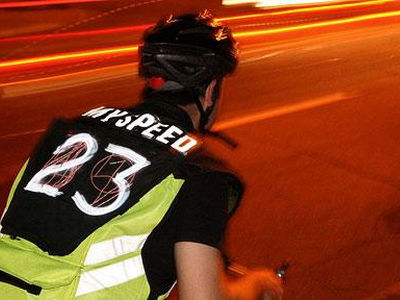A system where you can get a prize from a violator's fine if you keep the speed by 'automatic speed camera lottery'

A fine will be imposed on drivers who violate speed limits on public roads, but conversely, a 'system in which drivers who adhere to speed limits can receive fines for violators in a lottery manner' will be implemented in Sweden, albeit temporarily. It was reported by the Australian media
Sweden's'speed camera lottery' hit a red light years ago --Australian Associated Press
https://www.aap.com.au/factcheck/swedens-speed-camera-lottery-hit-a-red-light-years-ago/
In September 2021, Australia's Facebook group said, 'There is a'speed camera lottery'in Stockholm, Sweden, and drivers running below the speed limit will be registered in the pool to earn money. The prize will be the person who committed the speed violation. Is funded by the fines paid by . ' The same post has been posted by multiple accounts since the beginning of September.

It's a post that makes you think 'there is no such system' as much as people who don't swallow information on the Internet, but according to AAP, there is certainly a 'speed camera lottery' in Stockholm, and the same concept is in Sweden. It has been tested in other cities as well.
This system won the competition for 'ideas to recommend fun and safe driving' jointly held by the Swedish traffic safety agency
In September 2010, a lottery system devised by Richardson was tested in Stockholm. This is a movie that summarizes the situation at that time.
The Speed Camera Lottery --The Fun Theory --YouTube
The inventor, Richardson, is reflected in the camera. At the time of the competition, he was working for a cable TV station for children, and told AAP, 'I thought I could actually apply the game to help people.' I am.

The road in Stockholm where many cars come and go.

In order to protect people's safety, it is important to reduce speed violations and promote safe driving.

After Richardson's idea won the competition, an 'automatic speeding crackdown machine with lottery tickets' was actually installed on the roads in Stockholm.
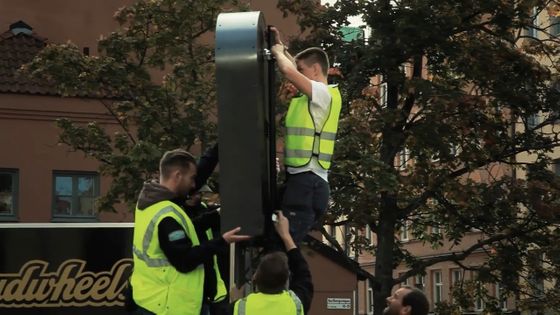
A device placed in the median strip detects the speed of a car passing by ...
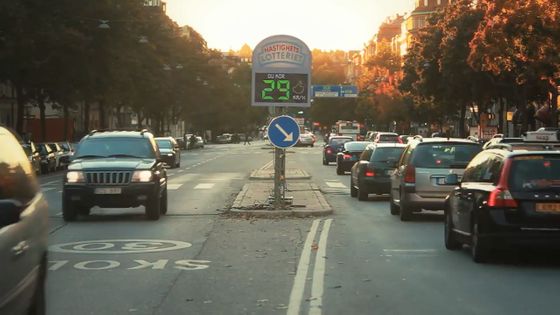
It distinguishes between speed-defending cars and speed-violating cars.
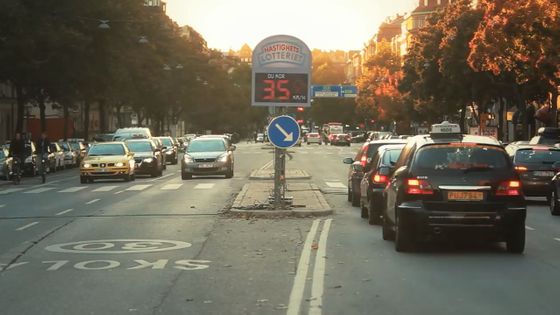
By combining with the pictures taken by the camera installed in front of this device, the car that keeps the speed is automatically registered in the lottery.
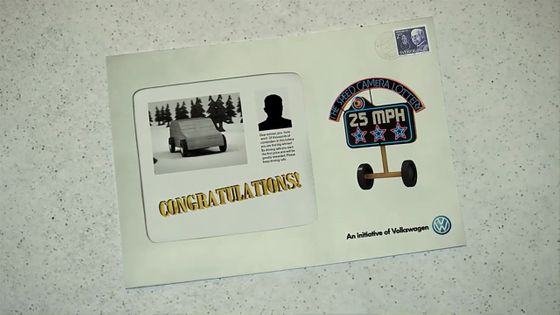
In a three-day experiment, 24,857 cars passed by the device.
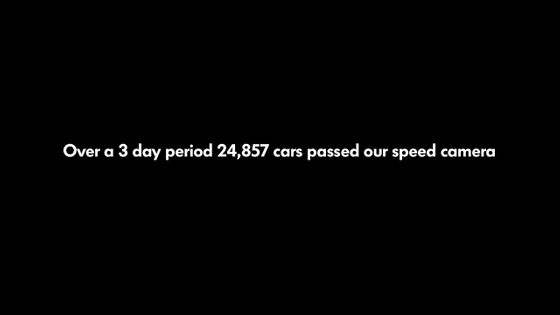
A police officer said, 'I usually drive in compliance with the law, but I wonder if it will hit me.'
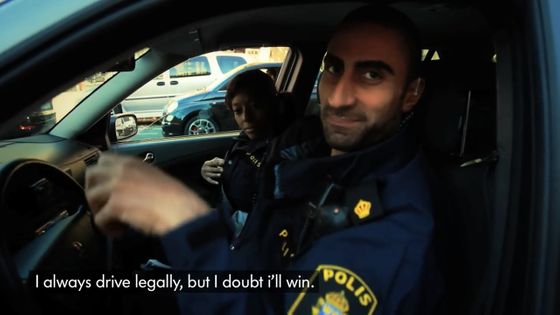
'It's really nice to drive in compliance with the law and get paid. It's perfect!' Said a man who welcomed this experiment.

Before the experiment, the average speed of cars passing through this road was 32km / h ...
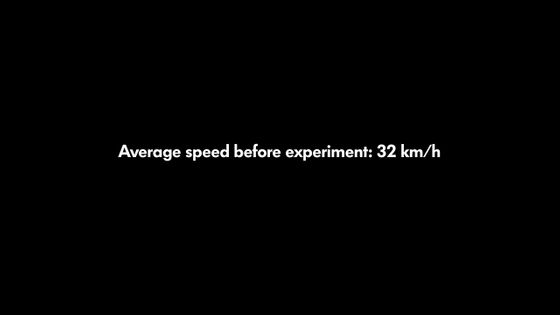
During the experiment period, the speed was 25km / h, which was an effect of reducing the speed by 22%. According to the NTF, five people won the lottery during the experiment, and one person was paid 20,000 Swedish kronor (about 250,000 yen) and four people were paid 10,000 Swedish kronor (about 120,000 yen). ..
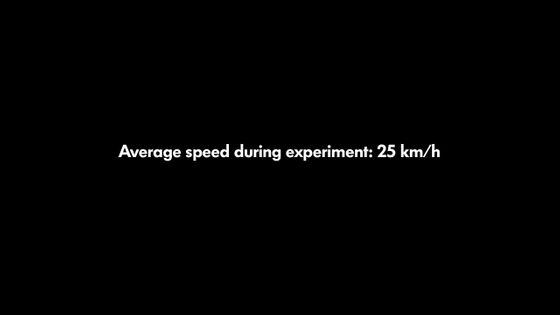
After that, in May and June 2011, similar experiments were conducted in Helsingborg , Kalmar , Karlstad , Gävle , Umeå , Sweden. However, since then, traffic authorities and politicians have not tried to promote this idea, so it seems that the lottery system has not been implemented at the time of writing the article. In addition, the prize money during the experiment period was not raised from 'fines paid by violators' as Mr. Richardson's idea, but was provided by Volkswagen.
The AAP admitted that the Facebook post that started the article was 'partially correct,' but said it was only implemented for a short period in 2010 and 2011 and was abolished at the time the article was written. indicate. He also pointed out that the prize money was not actually paid from the offender's fine, and concluded that 'the content also contains factual errors.'
Related Posts:
